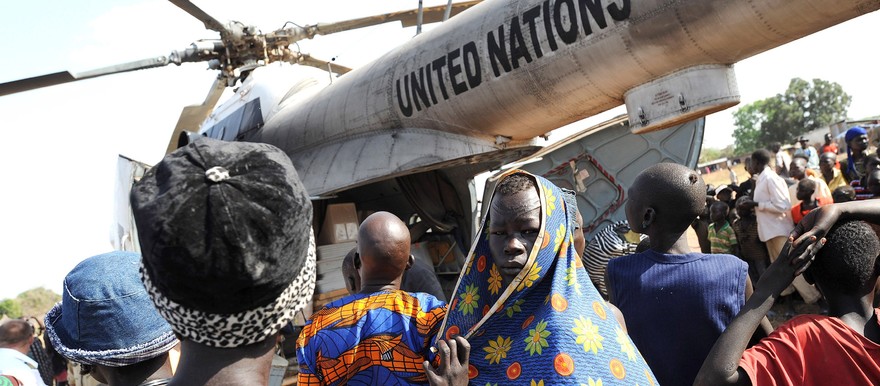The downing of a UN helicopter in South Sudan with four Russian pilots on board was condemned by the UN Security Council as a “grave violation” that “jeopardized the operations” of the UNMISS peacekeepers.
South Sudan’s army shot down the helicopter on Friday in Likuangole in eastern Jonglei. The army spokesman Philip Aguer said that the army opened fire because it thought the helicopter was an enemy plane supplying the rebel group of David Yau Yau.
According to Aguer, communications failure led to the accident: “The SPLA saw a white plane landing and asked UNMISS whether they had any flight in the area but they denied it…UNMISS should have informed us.”
Ban Ki-Moon has strongly condemned the attack on the helicopter, which he said was ‘clearly marked.’ He demanded that those responsible be brought to account.
The incident threatens to reduce UNMISS operations even as the more politically sensitive neighbouring missions in Darfur and Abyei come under comparable pressures amid worsening regional stability.
All three missions in the Sudans face continuing uncertainty both in terms of ground-level workability and Security Council backing. The mission in Darfur lost another four soldiers last Thursday while the more stable one in Abyei faces renewed threats of dry season attacks as tribal and diplomatic negotiations have stalled.
UN peacekeepers in South Sudan were already in a phase of “mission consolidation” after scaling down by a third compared to their predecessor mission, which had troops in the border states of South Kordofan and Blue Nile and headquarters in Khartoum before being evacuated last year at the time of the South’s independence.
Over the last year the UN had tried to scale up operations in remote parts of Jonglei after coming under scrutiny for failing to halt the massacre carried out in Pibor County last December and early January by Lou Nuer fighters.
Battles among rival tribes in Jonglei state since independence have killed thousands, with Pibor County at the center of the clashes. The Murle-led rebels of David Yau Yau are only one of several armed groups active in the state, with other militias drawing recruits from the Lou Nuer or Dinka Bor.
Civilian protection is part of the UNMISS mandate in the country, as well as security sector reform, but the UN has pointed to a number of limitations. Last month the secretary-general reported that “UNMISS’ ability to swiftly move, deploy and sustain troops in sensitive locations in response to threats to civilians continues to be undermined by the persistent lack of military utility helicopters.”
“Continuing operations in Jonglei State in September and October 2012 have underscored the need for military helicopters, in addition to the value of riverine assets,” he stated in one of his regular reports to the Security Council.
Sudan and South Sudan have repeatedly accused each other of harbouring and supporting the other’s rebel groups. Khartoum accuses Juba of relations with SPLM-North in Blue Nile and South Kordofan, where dry season fighting has recently resumed.
This claim has been a major obstacle in implementing the agreements between the two countries on economic and security matters. Until the two sides resume the flow of oil, economic conditions will continue to deteriorate, potentially with major ramifications for the internal politics and security of both countries.
File photo: A helicopter in Tali payam on 2 January 2011 (Tim McKulka/UN)




